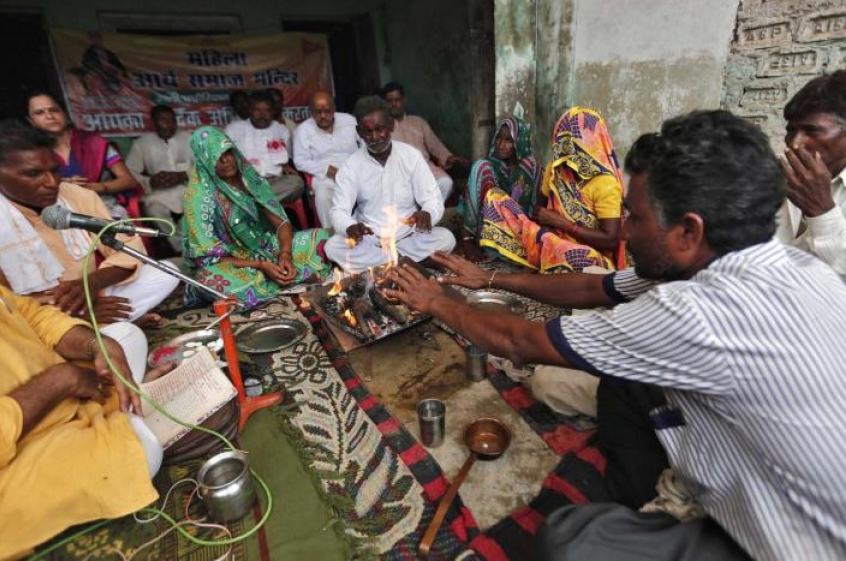
A lawyer with the advocacy group ADF India has raised concerns about the "worsening intolerant atmosphere" in India amid increasing attacks against Christians by Hindu nationalists.
Dozens of speakers have called on the Indian government to uphold laws that protect the fundamental rights of all citizens during a conference on "Building an Inclusive India" in New Delhi.
The summit, which began on May 25 and concluded on May 27, was attended by more than 800 delegates from all over India.
Tehmina Arora, who serves as the director of ADF India, highlighted the rise in attacks against Christians this year.
"They [Hindu nationalists] demonise and attack us: 2017 saw a 20 per cent increase in the number of atrocities against Christians," Arora told the conference, according to World Watch Monitor.
"When you go to police, they hardly cooperate and often refuse to register complaints. There is a growing culture of impunity. We could file only 25 criminal cases, as against the 240+ incidents reported in the year," she went on to say.
Arora lamented that those who attempt to convert Hindus to Christianity "will be beaten up" and even those who pray could end up at the police station.
"Even I could be accused of 'conversion' for addressing this house [with many non-Christians]," she asserted, as reported by World Watch Monitor.
As many as seven Indian states have approved anti-conversion laws, including Orissa, Madhya Pradesh, Chhattisgarh, Gujarat, Himachal Pradesh and Jharkhand. The state of Uttarkhand was the latest state to approve an anti-conversion measure after the "Freedom of Religion" bill was signed by Gov. Krishna Kant Paul on April 18.
In southern Karnataka state, a pastor was recently arrested for allegedly converting Hindus, even though there is no anti-conversion law in the state.
Arora also pointed to the controversy surrounding an archbishop's call for prayer for India. Catholic Archbishop Anil Cuoto of Delhi has been accused of opposing Prime Minister Narendra Modi when he sent out a letter calling on Christians to take part in a "prayer for the nation."
In the letter, the archbishop encouraged Christians to take part in the campaign by "foregoing at least one meal ... and offering penance and sacrifices for our spiritual renewal and that of our nation."
In response, India's Home Minister Rajnath Singh contended that "minorities are safe" in the country and that "no-one should speak to mobilise the people of the country on the basis of religion."
Shabnam Hashmi, who was one of the organizers of the conference in New Delhi, urged the delegates to spread the message of the speakers. "The challenge before us is clear. We have to speak up and take the message to the masses," Hashmi said according to World Watch Monitor.
Some religious rights advocates have contended that Hindu nationalists have been emboldened in carrying out attacks against non-Hindus because of the hostile tone of the National Democratic Alliance government, led by the Hindu nationalist Bharatiya Janata Party.
The increasing attacks against Christians have prompted the charity Open Doors to rank India as the 11th worst country in the world when it comes to persecution of Christians, up from 15th place last year.













